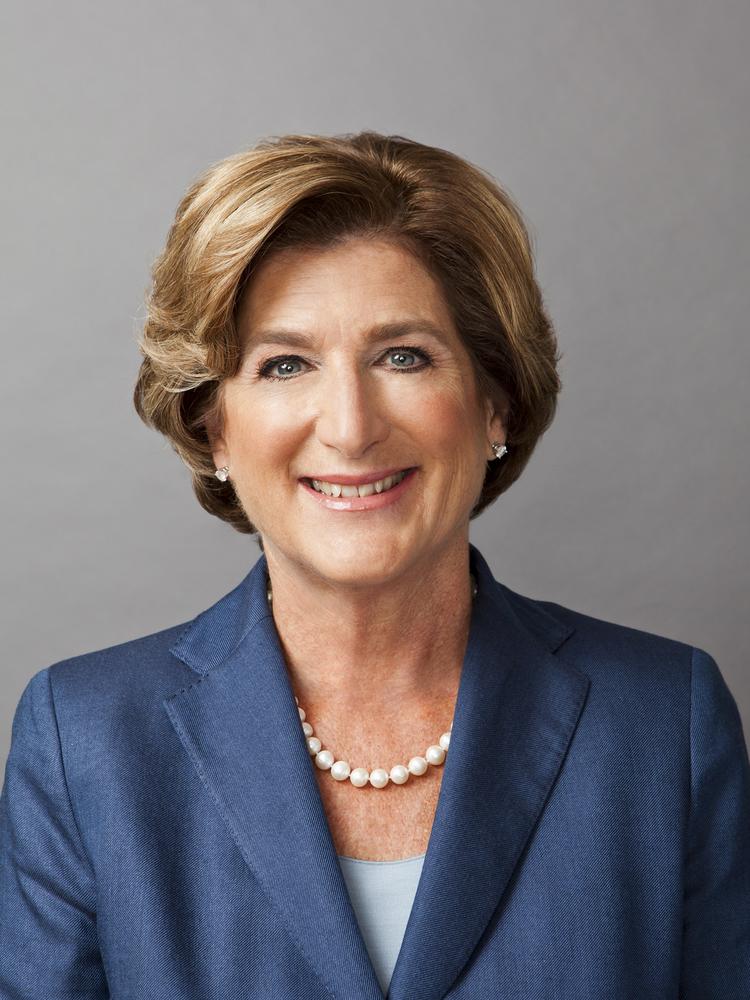Campbell Soup CEO makes three predictions about the future of food
In 1962, Andy Warhol’s most famous work — "Campbell’s Soup Cans" — displayed his reaction to one of the most ubiquitous brands of the day. Fifty years later, it's hard to imagine that the company is trying to reinvent how food is bought and eaten.
But Denise Morrison, CEO of Campbell Soup Co. (NYSE: CPB), speaking in Boston Wednesday at the Boston College Chief Executives Club luncheon, described the efforts the company has made in recent years to predict long- and short-range trends that will change the food industry. Think "connected kitchens."
Morrison, a Boston College alumna who has worked at Kraft Foods, Nabisco, Nestle and Pepsi-Cola before assuming her current role in 2011, described how her company tried to look “beyond a typical five-year horizon” to the coming disruptions “driven by the intersection of real food, health, well-being and technology.” The effort included interviews with futurists, academics, chefs, designers, nutritionists and anthropologists, she said. She even acknowledged that the effort represented a big change from the Campbell’s that most people know: “This is not the way we used to do business at Campbell’s. But it’s the way we must do things in the future.”
Morrison outlined three main changes she expects in coming years related to food, which she called "future commerce," "limitless local" and "better-dot-me." Here are her descriptions of those concepts, in her own words:
- Future commerce: “As has been widely discussed, e-commerce is already transforming many industries, including entertainment and apparel. Future commerce will be flexible and fully automated, providing consumers with a convenient, instant and omnipresent experience. Many of us in this room have an e-commerce business or have purchased goods online. However, emerging digital technologies, including artificial intelligence, augmented and virtual reality, and new notions of currency and means of transaction are clearly changing how we acquire food online, over mobile devices and traditional brick-and-mortar retail context. This will fundamentally alter how consumers interact with and experience brands. Consumers will insist that future commerce be frictionless. Consumer needs will need to be met anytime, anywhere — and everyday consumer staples will automatically be refilled based on consumption habits, purchase data and calendar apps. Through the internet of things, "connected kitchens" will alert consumers if they’re running low on broth, and when their salad dressing needs to be replenished.”
- Limitless local: “There’s a growing movement that embraces smaller and more regional farming, and food-production models that foster new narratives around quality, community and place. It will challenge conventional approaches to manufacturing, distribution and marketing. The change can be characterized as moving from big, slow and removed to small, safe, agile and regionally connected. It means networks of small-scale suppliers and modular factories to source ingredients and produce more agilely. With the growth of both urbanization and globalization, consumers are becoming increasingly disconnected from their food. As consumer demand diversifies, this growth platform calls for more local, targeted and varied product lines that offer authentic stories. This connects consumers to the taste of place, ensures quality and responds with faster, global market innovation.”
- Better-dot-me: “The better-dot-me platform is already emerging. The next frontier in nutrition will be about reconfiguring diets according to individual specific physiology, lifestyle and health goals. We’re all different ages, sizes, shapes, genders and we all have different lifestyles. We’re quickly moving to bespoke diets that enable tailored and informed nutritional food choices. It’s this foresight that inspired us to fund a new startup company in Campbell called Habit, an Oakland, California, startup founded and led by Neil Grimmer. Neil is the entrepreneur who started Plum Organics baby food, which is a business that Campbell's bought. But Habit is positioned at the intersection of health, technology and food, and is poised to lead the personalized nutrition revolution. It starts with the purchase of an at-home Habit nutrition test kit that’s sent to a certified lab. Habit’s proprietary and patent-pending approach will then synthesize the data and create a personalized diet. A nutrition coach will help you define your goals and you can order delicious and nutritious chef-inspired meals which are designed specifically for you. Habit is the ultimate consumer empowerment model to make customized choices that enhance individual health and well-being.”

No comments:
Post a Comment